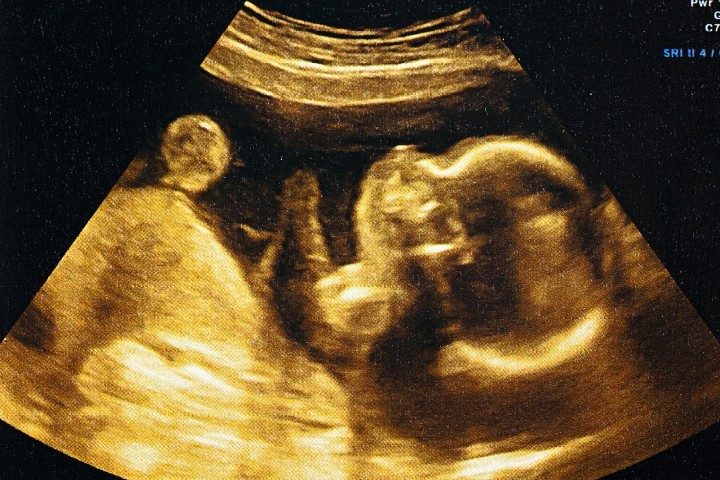
A federal judge on Wednesday temporarily blocked a recent Indiana law that would require doctors to tell women undergoing drug-induced abortions about a “reverse” treatment for potentially stopping the abortion process.
The ruling came just one day before the law was set to take effect. The bill, known as H.B. 1577, which required providers to recite specific language to women seeking a medication abortion, was passed by the Republican-controlled legislature earlier this year, and Governor Eric Holcomb signed it into law in April.
Six states — Arkansas, Idaho, Kentucky, Oklahoma, South Dakota, and Utah — have similar requirements in place. In two other states — Oklahoma and North Dakota — these laws are blocked by legal challenges, according to Associated Press.
Local outlet IndiStar reports that the lawsuit filed by pro-abortion groups argued that the law’s requirement would confuse patients and increase the “stigma” associated with obtaining an abortion — meaning depicting it for what it is — while also forcing doctors to give what they regard as “dubious medical information to patients.”
The plaintiffs include Planned Parenthood, groups that operate other clinics in the state, and the American Civil Liberties Union.
Pro-abortion groups claim the abortion reversal process is not “supported by science” and that there is limited information on its safety.
The plaintiffs also stated that the requirement violates doctors’ First Amendment-protected rights.
Republican legislators, in turn, maintained the requirement would ensure that a woman had information about halting a medication-induced abortion if she changes her mind on terminating a pregnancy after taking the first of the two drugs used in the procedure. The regimen typically includes a combination of two drugs — mifepristone and misoprostol — taken 24 to 48 hours apart . If a mother-to-be decides to keep a baby after taking the first abortion drug, she is offered a dose of progesterone to counteract it.
Dr. George Delgado, a San Diego-area physician, and a founder of the Abortion Pill Reversal group, testified before Hanlon that the treatment of “reversing” abortion is safe, and cited “50 to 75 successful reversals” he’s overseen directly. He also shared two articles supporting the claim. The state also submitted testimony from other physicians who are in support of the procedure, according to the Courthouse News Service.
American Pregnancy Association states on its website that progesterone has been safely used in pregnancy for more than five decades. Initial studies are said to show that the birth defect rate in babies born after the “reverse” procedure is less than or equal to the rate in the general population, and neither mifepristone or progesterone is associated with birth defects.
Nonetheless, U.S. District Judge James Hanlon was not convinced by the evidence, and sided with pro-abortion groups. He wrote in his ruling that the claim about the reversal procedure was not supported by the evidence, and requiring abortion providers to inform patients about it violated their free speech rights.
“While the State may require abortion providers to give a woman seeking an abortion certain types of information as part of the informed-consent process, that information must, at a minimum, be truthful and not misleading…. In sum, because the evidence in the record does not show that the required disclosure is ‘truthful and not misleading,’ it is not a ‘reasonable’ regulation of the practice of medicine,” the judge concluded.
Hanlon noted that the state could still inform people about abortion reversal through, just not via a face-to-face meeting with a doctor. For instance, that information may be provided on the Indiana Department of Health website — particularly because physicians are already required to direct patients to that website before an abortion.
“But the First Amendment is directly implicated when the State takes the same message and forces medical providers to recite it,” Hanlon said.
Alexis McGill Johnson, president and CEO of Planned Parenthood Federation of America, applauded Hanlon’s decision “to side with science and block this medically inaccurate, insulting, and potentially dangerous law.”
The Indiana attorney general’s office, which is defending the law, said it was reviewing the ruling to determine its next steps.
“I remain committed to protecting the sanctity of life and women’s health under the rule of law as my highest priority,” Attorney General Todd Rokita said in a statement. The office has argued that the Legislature was acting to protect “fetal life and women’s health.”
Indiana’s legislature has adopted numerous abortion restrictions over the past decade, with several of them later blocked by challenges in federal court.
Indiana’s pro-life group Right to Live notes that in 2020, Indiana was scored by Americans United for Life as the sixth most pro-life state in the nation, and was given the grade of “F” by the pro-abortion Population Institute for being a state that it does not consider “friendly” to unrestricted abortion access.




